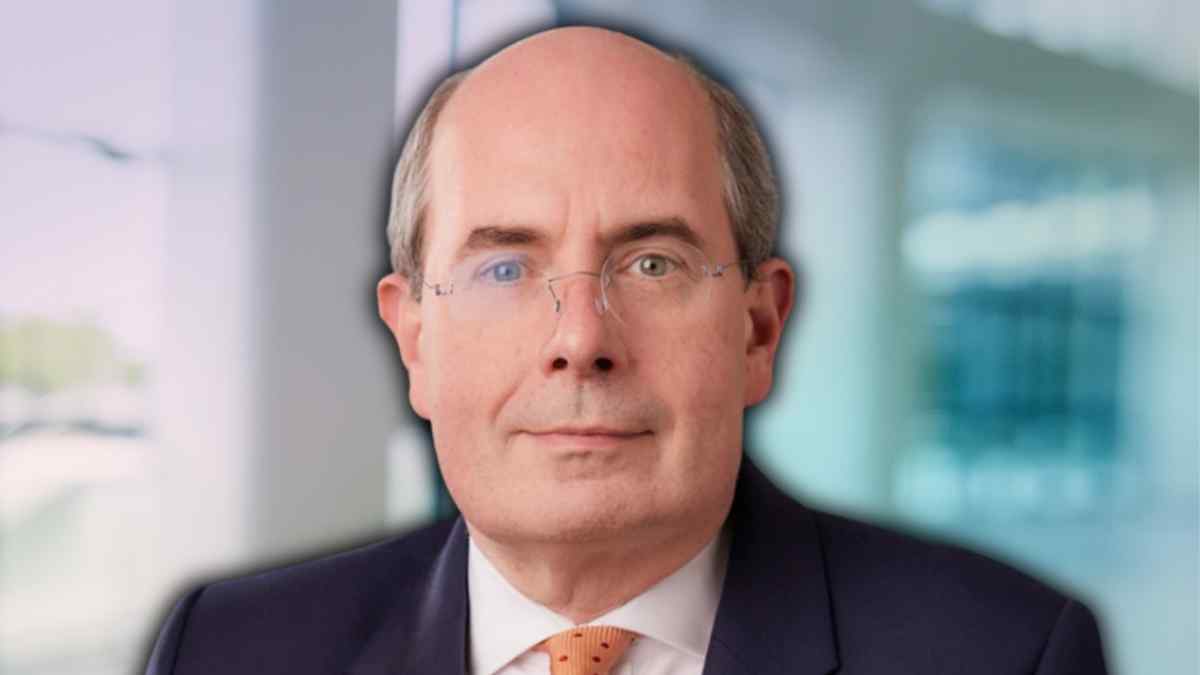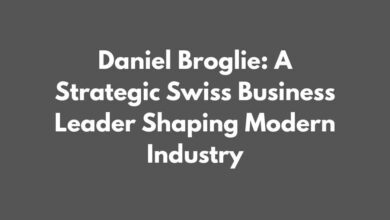Sir John Kingman: A Mastermind Behind Financial Strategy and National Reform

Sir John Kingman is not merely a name in the corridors of British power and finance—he is a symbol of intellectual rigour, strategic foresight, and effective leadership. With an extensive career spanning Whitehall, financial institutions, and government advisory roles, Sir John has had an indelible impact on the United Kingdom’s economic and scientific framework. From overseeing billion-pound banking interventions during the financial crisis to chairing critical institutions like Legal & General and Barclays Bank UK PLC, his influence touches every corner of British economic policy and enterprise.
Early Life and Education
Born in April 1969, Sir John Oliver Frank Kingman grew up in a household where academia was held in high esteem. He is the son of the renowned mathematician Sir John Frank Charles Kingman, who made groundbreaking contributions to probability theory and statistical science. With such intellectual pedigree, it is no surprise that Sir John Kingman pursued academic excellence from an early age.
He was educated at prestigious institutions, including Balliol College, Oxford, where he read Philosophy, Politics and Economics (PPE)—a popular choice for many future British leaders. His early exposure to economics and governance provided a strong foundation for the roles he would later assume in public and private sectors alike.
Rise Through Whitehall: Civil Service Excellence
Sir John Kingman’s rise through the UK civil service ranks was swift and remarkable. He held various senior positions in HM Treasury, the government’s economic and finance ministry. Notably, he became Second Permanent Secretary to the Treasury, a position rarely achieved at such a relatively young age. In this role, Kingman was not just a bureaucrat but a key decision-maker in shaping the financial policy of the nation.
During his tenure, he became best known for his role in managing the UK’s response to the 2008 global financial crisis. It was a time of chaos, uncertainty, and impending economic collapse. Yet, amid this turbulence, Sir John played a pivotal role in designing and executing a bailout strategy that helped stabilise the British economy.
He led the negotiations with RBS, HBOS, and Lloyds, orchestrating a £37 billion recapitalisation plan that would rescue the banking sector from collapse. His analytical mind and calm under pressure earned him significant recognition both inside and outside government circles.
UK Financial Investments Ltd: Steward of Public Wealth
Following the financial crisis, Sir John was appointed the first Chief Executive of UK Financial Investments Ltd (UKFI). This government-owned company was set up to manage the state’s shareholdings in banks that had been bailed out during the crisis, including RBS and Lloyds.
Kingman’s stewardship at UKFI was marked by a balanced approach—he protected public money while encouraging strategic reform within the institutions under his remit. His leadership ensured that taxpayers’ investments were managed prudently, with eventual exits that aimed to minimise losses and maximise returns.
This phase of his career also highlighted his ability to navigate both political sensitivities and hard-nosed commercial realities—a rare combination that further cemented his reputation as one of Britain’s top economic strategists.
Transition to the Private Sector: Rothschild and Beyond
In 2010, Sir John transitioned into the private sector, joining the prestigious investment bank Rothschild. He served as Global Co-Head of the Financial Institutions Group, advising banks, insurers, and regulators worldwide. This role broadened his international exposure and deepened his understanding of global financial markets.
Though his tenure at Rothschild was relatively short, it marked an important phase in which he demonstrated that his capabilities extended far beyond government service. His ability to adapt quickly and lead within high-stakes financial environments only enhanced his already impressive profile.
Leading Science and Innovation: Chair of UKRI
One of Sir John Kingman’s most impactful yet less publicised contributions came in 2016 when he was appointed Chair of UK Research and Innovation (UKRI). This body was formed to bring together the UK’s seven research councils, Innovate UK, and Research England under one umbrella.
Under his leadership, UKRI oversaw the allocation of nearly £8 billion annually in public science funding. He was instrumental in creating a more cohesive and strategic approach to research and innovation in the UK. His tenure coincided with a period where global competition in technology and scientific development was heating up, making his role particularly critical.
Kingman championed initiatives to support cutting-edge research while pushing for better commercialisation of scientific discoveries. He understood the link between research investment and national productivity, and he worked to ensure that UK science remained globally competitive.
Corporate Governance: Legal & General and Barclays
Sir John’s later career has seen him take on a range of high-profile corporate roles. Most notably, he became Chair of Legal & General Group PLC in 2016, one of the UK’s leading financial services and asset management firms. His stewardship has been marked by strong governance practices, forward-looking sustainability policies, and a focus on long-term value creation.
In June 2023, he was appointed as an Independent Non-Executive Director of Barclays PLC and simultaneously became Chair of Barclays Bank UK PLC. His current position is outlined on the official Barclays leadership page, which details his responsibilities and role in guiding one of the UK’s most significant banking institutions.
These roles place him at the heart of British retail banking, allowing him to influence policy, risk management, and innovation from the boardroom of one of the UK’s oldest financial institutions.
His appointment at Barclays is widely seen as a strategic move to bring regulatory insight, experience in crisis management, and a strong ethical compass to the bank’s governance structure.
Reform and Integrity: The FRC Review
In 2018, Sir John Kingman was invited to conduct a review of the Financial Reporting Council (FRC), the UK’s audit and accounting regulator. His final report was both scathing and constructive. He recommended that the FRC be replaced by a new, more robust body—the Audit, Reporting and Governance Authority (ARGA).
This review was lauded for its honesty and depth, and many of its recommendations have since been implemented or are under active consideration. The episode demonstrated Kingman’s unwavering commitment to transparency, accountability, and institutional reform.
Personal Attributes and Leadership Style
Sir John Kingman’s leadership style is defined by intellectual precision, ethical clarity, and strategic pragmatism. He is known for avoiding unnecessary attention while letting his work speak volumes. He combines the analytical mind of a scholar with the decisiveness of an executive, making him uniquely effective across sectors.
Colleagues and observers alike often remark on his ability to manage complexity. Whether handling a banking crisis, running a scientific funding agency, or chairing a FTSE 100 firm, he remains composed, informed, and focused.
Recognition and Honours
For his services to the economy and public life, Sir John Kingman was knighted—an honour that reflects not only his achievements but also the respect he commands across both government and industry.
He continues to be a sought-after voice in policy discussions, corporate strategy sessions, and reform initiatives. While he may not court the limelight, his influence is deeply felt wherever serious decisions about finance, governance, or innovation are made.
Legacy and Future Impact
Sir John Kingman’s legacy is already profound. Few individuals can claim to have steered a nation through financial catastrophe, reformed major institutions, and led billion-pound organisations—all before the age of 60. Yet, Kingman shows no sign of slowing down.
His current roles place him at the confluence of technology, finance, and governance—a space where he is likely to continue shaping the UK’s future. Whether addressing the challenges of climate finance, promoting inclusive innovation, or improving corporate accountability, Kingman remains a towering figure in British public life.
Conclusion
Sir John Kingman embodies the rare blend of intellect, experience, and moral clarity needed to guide a country through financial storms and institutional reform. From the Treasury to Barclays, from UKFI to UKRI, his career paints the portrait of a man who understands both the mechanics of money and the importance of public trust.
In an age where leadership is often scrutinised and short-lived, Kingman stands out as a beacon of competence and stability. As Britain navigates new economic and technological frontiers, voices like his will be more crucial than ever.



